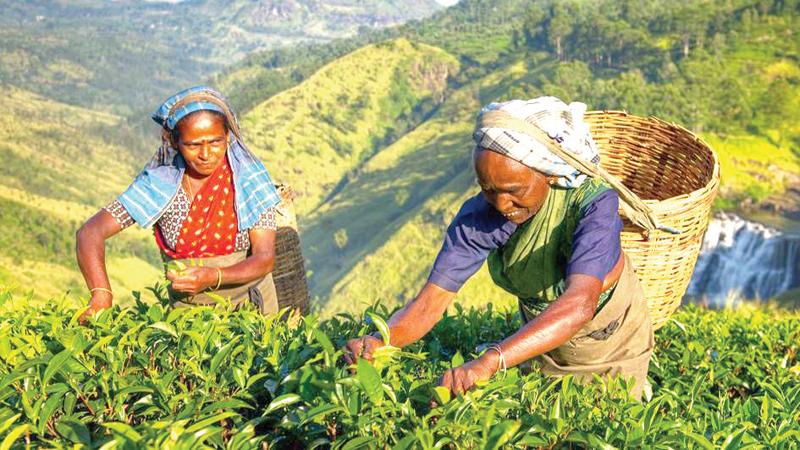
Praising the achievements since privatising the plantation sector, the Planters’ Association of Ceylon (PA), the umbrella organisation for Regional Plantation Companies (RPCs) justified the privatisation move that turned a loss-making sector into a profitable venture, at a media briefing at the Sri Lanka Tea Board last week.
The poorly run state-managed sector in the 1970s reached a milestone this year marking 30-years since privatisation in 1992.
“The estates were not handed over to us on a platter. We had to pay for it and begin from scratch to revive a dormant sector,” said PA Past Chairman Dr. Roshan Rajadurai scoffing notions that the sector was handed over at no cost and it has not reached the expectations of the move.
PA officials were cock-a-hoop at the feats achieved down the road of privatisation to make employees a happy lot today meeting their Rs. 1,000 wage demand, honouring statutory payments such as EPF and ETF and maternal benefits.
However, estate sector workers who gathered at a World Women’s Day event in Colombo last week said plantation sector workers do not get the Rs. 1,000 even though the cost of living had skyrocketed and still most line rooms are below standard.
The estate management can do much more to improve our lifestyle and boost productivity, P. Devi, an estate employee at Nuwara Eliya said.
Trade Unions representing the Rs. 1,000 demand said that the demand is no longer valid as commodity prices have gone over the ceiling and that a fresh demand will be made soon in line with the cost of living.
“We are ready to pay a higher daily wage if tea prices are above the cost of production,›› said PA Chairman Bhathiya Bulumulla.
However, workers and trade unions say that RPCs are not presenting the actual picture of their earnings which they believe is at a comfortable position to meet the wage demand of workers.
“It is not only the wage that we look into but also the welfare of workers, the living conditions, maternity care and child care facilities which have improved over the years,” said Bulumulla.
The plucking average in Sri Lanka has been around 22 kgs while it is around 34 in the state of Assam, 60 kgs in Kenya and 50kgs in South India.
Planters blamed the archaic worker-attendance model for the low plucking norm that needs to be replaced with a productivity-based model that the RPC have been advocating.
Planters expressing concerns of the developments in Ukraine and Russia, two vital markets for Sri Lankan tea, said they would monitor the situation in the region and take steps accordingly.
However, the Government has been saying the lease agreement with RPCs need to be reviewed as around 39,000 hectares of arable land had not come under RPC’s plough.
RPCs claim that they are the only stakeholder in producing, processing and marketing tea, rubber and palm oil while caring for a resident population of around one million.
Plantation companies account for 35 percent of tea and 35 percent of rubber cultivation, 25 percent of Green leaf production, 35 percent of rubber and processes 41 percent of made tea.
RPCs manage 453 estates and 300 factories.
Twenty three RPCs manage tea, rubber, sugar, palm oil, cashew, palmyrah estates in Puttalam, Kurunegala, Matale, Kandy, Nuwara Eliya, Badulla, Moneragala, Kegalle, Ratnapura, Gampaha, Colombo, Kalutara, Galle, Matara.
